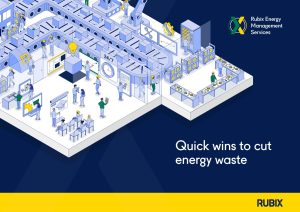Industrial motor-driven systems – including compressors, pumps and fans – are typically only around 36% efficient. With the right interventions, they can be optimised to hit 72%. This cuts energy waste, reduces cost and limits emissions.
At a time when the energy crisis threatens to slow – or even reverse – progress on environmental and financial objectives, motor driven systems offer a potential antidote.
It’s all set out in detail in our latest report ‘Quick wins to cut energy waste’.
Motor-driven systems represent more than two-thirds of electricity consumption in industry and there are opportunities for improvement at many points across the system.
More than two-thirds of motors in use across European industry have a low energy efficiency rating while it’s estimated that a third of v-belts are running inefficiently due to worn pulleys and 20-40% of electricity used by compressors is lost through air leaks.
In total energy savings of between 20-30% can be usually achieved by optimising the whole motor-driven system.
This is typically done through a combination of detailed asset tracking, repair and replacement programmes, and ongoing condition monitoring.
Commenting on the report, Jesper Mikkelsen, Group Head of Services at Rubix, said: “The significant amount energy wasted by inefficient motor-driven systems is hiding in plain sight.
“Our latest report aims to highlight the problem and offer practical solutions that both reduce the cost and environmental impact for manufacturers everywhere.
“By addressing these issues, manufacturers can navigate the current economic challenges while building longer-term resilience to the energy crisis and accelerating progress towards net zero.”
Opportunities to improve efficiency:
- Variable speed drives can be retrofitted to existing motors, making sure they only use as much energy as they need to for the job they are doing.
- Motor efficiency can be improved by using the correct size for the application, switching to energy efficient models and correctly regulating their speed.
- Mechanical equipment and specifically gearboxes can be made more efficient, reducing lost energy, by right-sizing the gearing for the application, replacing worn gearboxes and using energy-efficient lubricants.
- Driven applications can be improved by identifying and fixing leaks in compressed air systems, using intelligent pumps with variable speed controls and replacing the worn pulleys that can affect the efficiency of v-belts.
For more information about the services available from Rubix, visit solution.rubix.com.






